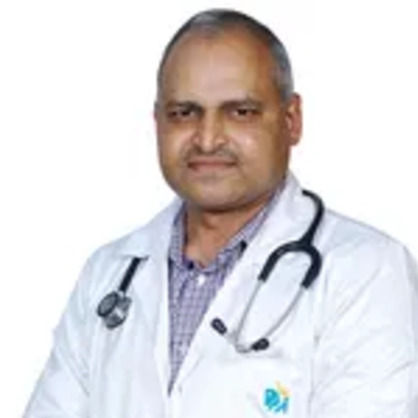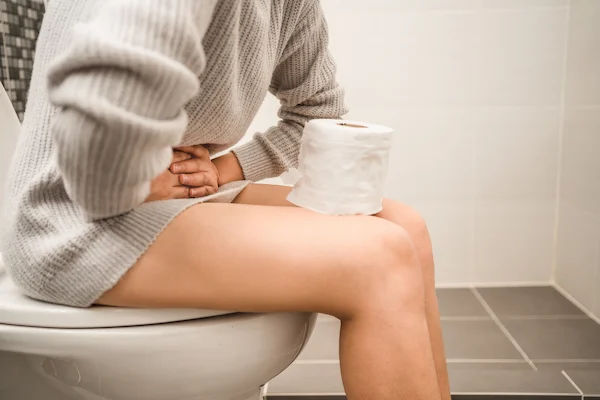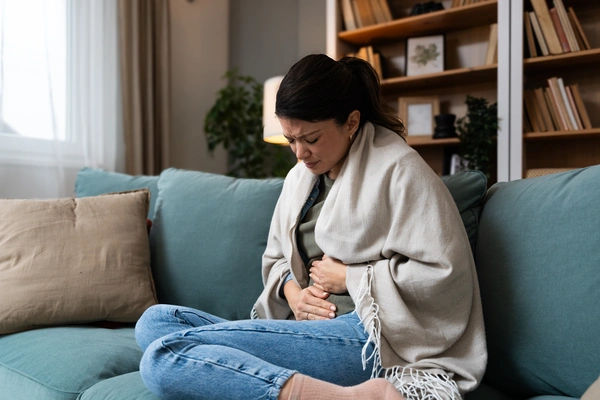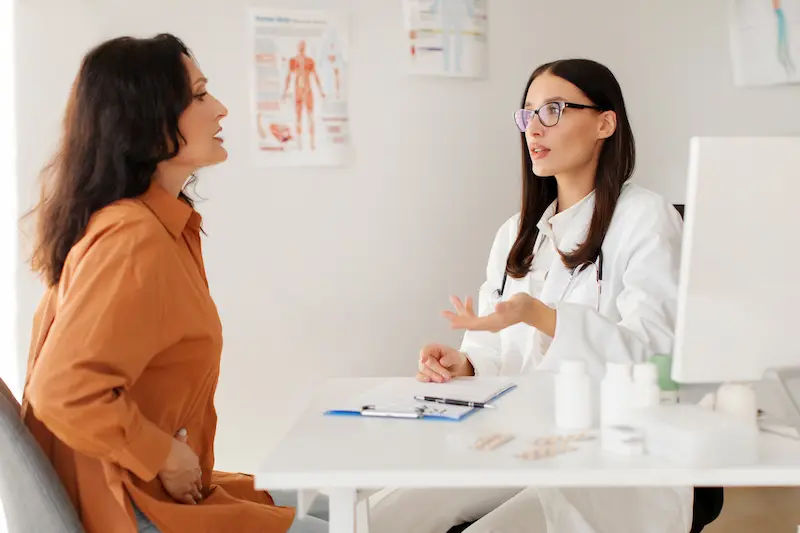Diarrhoea Investigation and Testing Methods
Worried about ongoing diarrhoea? Learn about causes, when to see a doctor, and essential diagnostic tests. Get expert help via Apollo 24|7.

Written by Dr. M L Ezhilarasan
Reviewed by Dr. Dhankecha Mayank Dineshbhai MBBS
Last updated on 13th Jan, 2026

Diarrhoea Investigation and Testing Methods
Introduction
Diarrhoea is a common condition that most people experience at some point in their lives. While it is often temporary and resolves on its own, persistent or severe diarrhoea may require medical investigation to determine the underlying cause. If you or a loved one is dealing with frequent diarrhoea, understanding the testing methods can help in getting the right diagnosis and treatment.
This article will guide you through the possible causes of diarrhoea, when to seek medical help, and the different tests doctors may recommend.
What Is Diarrhoea?
Diarrhoea is defined as loose, watery stools occurring three or more times a day. It can be:
- Acute (short-term): Lasting a few days, often due to infections.
- Chronic (long-term): Persisting for weeks or months, possibly indicating an underlying health issue.
Common Symptoms
- Frequent, loose, or watery stools
- Abdominal cramps or pain
- Bloating and nausea
- Fever (if caused by infection)
- Dehydration (dry mouth, dizziness, fatigue)
When Should You See a Doctor?
Most cases of diarrhoea resolve on their own with rest and hydration. However, you should seek medical attention if you experience:
- Diarrhoea lasting more than 2 days (for adults) or 24 hours (for children)\
- Signs of dehydration (excessive thirst, dark urine, dizziness)
- Severe abdominal pain or bloody stools
- High fever (above 102°F or 39°C)
- Recent travel to areas with poor sanitation
What Causes Diarrhoea?
Diarrhoea can result from multiple factors, including:
1. Infections (Most Common Cause)
- Bacterial infections (E. coli, Salmonella, Shigella)
- Viral infections (Norovirus, Rotavirus, COVID-19)
- Parasitic infections (Giardia, Amoebiasis)
2. Food Intolerances & Allergies
- Lactose intolerance
- Gluten sensitivity (Celiac disease)
3. Digestive Disorders
- Irritable Bowel Syndrome (IBS)
- Inflammatory Bowel Disease (IBD) – Crohn’s disease, Ulcerative colitis
4. Medications & Treatments
- Antibiotics (can disrupt gut bacteria)
- Chemotherapy
5. Other Causes
- Stress & anxiety
- Excessive alcohol or caffeine
Consult Top Physician For More Health Benefits
How Is Diarrhoea Diagnosed?
If your diarrhoea persists or is severe, your doctor may recommend tests to identify the cause. Common diagnostic methods include:
1. Medical History & Physical Exam
- Your doctor will ask about:
- Duration and frequency of diarrhoea
- Recent food intake or travel
- Medications you are taking
- Other symptoms (fever, weight loss, blood in stool)
2. Stool Tests
- Stool Culture: Checks for bacterial or parasitic infections.
- Ova & Parasite Test: Detects parasites in stool.
- Faecal Occult Blood Test: Identifies hidden blood, which may indicate inflammation.
- Stool PCR Test: Detects viruses like Norovirus or Rotavirus.
3. Blood Tests
- Complete Blood Count (CBC): Checks for infections or anaemia.
- Electrolyte Panel: Assesses dehydration levels.
- Celiac Disease Test: Measures antibodies linked to gluten intolerance.
4. Imaging Tests (If Needed)
- Abdominal X-ray or CT Scan: Looks for blockages or inflammation.
- Colonoscopy/Endoscopy: Examines the intestines for ulcers, tumours, or IBD.
How Can You Manage Diarrhoea at Home?
While waiting for test results or if your diarrhoea is mild, you can follow these steps:
1. Stay Hydrated
- Drink oral rehydration solutions (ORS), coconut water, or clear broths.
- Avoid caffeine, alcohol, and sugary drinks.
2. Eat a BRAT Diet
- Bananas, Rice, Applesauce, Toast (bland foods that help firm stools).
- Gradually reintroduce normal foods once symptoms improve.
3. Avoid Trigger Foods
- Dairy (if lactose intolerant)
- Spicy, fatty, or high-fibre foods
4. Probiotics
- Yoghurt or probiotic supplements can help restore gut bacteria.
5. Over-the-Counter Medications (With Caution)
- Loperamide (Imodium) can reduce symptoms but should not be used for infectious diarrhoea without a doctor’s advice.
When to Consult a Doctor for Further Testing?
If home remedies don’t help, or if you have severe symptoms, it’s important to consult a healthcare provider. Apollo 24|7 offers easy online consultations and lab testing to help diagnose the cause of your diarrhoea quickly.
Why Choose Apollo 24|7?
- Expert doctors are available for online consultations.
- Home sample collection for stool and blood tests.
- Fast and accurate lab reports to guide treatment.
Book a test or consult a doctor today to get the right care for your digestive health!
Conclusion
Diarrhoea is usually temporary, but persistent cases need medical evaluation. Understanding the testing methods helps in getting the right diagnosis and treatment. Stay hydrated, follow a gentle diet, and seek medical advice if symptoms worsen.
If you need expert guidance, Apollo 24|7 is here to help with convenient consultations and diagnostic tests. Take charge of your health today!
Consult Top Physician For More Health Benefits
Consult Top Physician For More Health Benefits

Dr D M Karthik
General Practitioner
4 Years • MBBS, Fellowship in Diabetes Mellitus, Advance certificate in Diabetes Mellitus, Derma Nutrition Certification
Visakhapatnam
Apollo 24|7 Clinic - Andhra Pradesh, Visakhapatnam

Dr. M L Ezhilarasan
General Practitioner
6 Years • MBBS
Visakhapatnam
Apollo 24|7 Clinic - Andhra Pradesh, Visakhapatnam

Dr. Swarna Deepak K
General Physician/ Internal Medicine Specialist
20 Years • MBBS: MD (Internal Medicine) MRCP (UK), EDIC (European Diploma in Critical Care), IDCCM, IFCCM (Critical Care), FID (Royal Liverpool Academy)
Hyderabad
Apollo Hospitals Jubilee Hills, Hyderabad
(425+ Patients)

Dr. Dhanraj K
General Physician/ Internal Medicine Specialist
25 Years • MBBS, MD Internal Medicine - Osmania Medical College, Hyderabad
Hyderabad
Apollo Hospitals Jubilee Hills, Hyderabad
(400+ Patients)

Dr. Harshendra Jaiswal
General Physician/ Internal Medicine Specialist
12 Years • MBBS , MD (General medicine)
Kolkata
108 DHANA DHANVANTARI Clinic, Kolkata
(25+ Patients)




